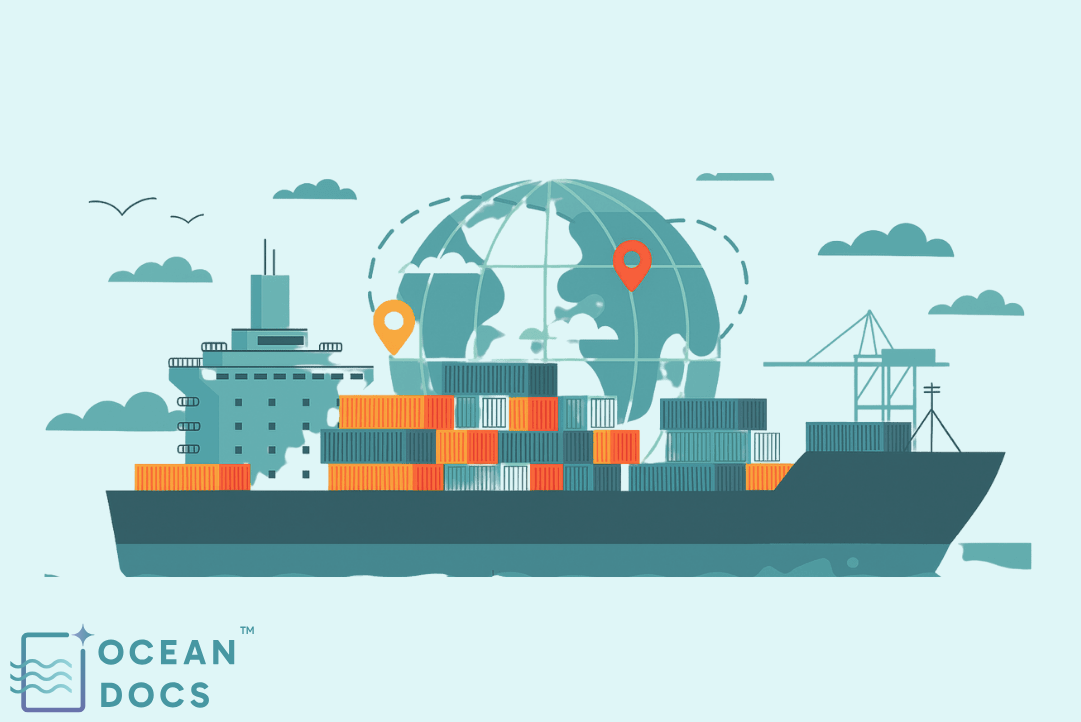
SOLAS Compliance Made Simple: A Guide for Ship Crews with OceanDocs AI
August 29, 2025 By OceanDocs AI
In the maritime world, safety is not an afterthought, it is the foundation on which global shipping operates. The International Convention for the Safety of Life at Sea, known universally as SOLAS, is the most important international treaty that ensures this safety. Originally introduced in 1914 following the Titanic tragedy, SOLAS has evolved into a global benchmark for vessel safety, construction, and crew preparedness.
Today, compliance with SOLAS is more than a legal obligation; it is a moral duty and a critical part of protecting seafarers, cargo, and marine environments. However, as regulations grow in complexity, ship operators face challenges in ensuring their crews remain up to date and documentation remains inspection-ready. This is where OceanDocs AI steps in, offering digital solutions that bring clarity and simplicity to compliance management.
What Is SOLAS?
SOLAS, administered by the International Maritime Organization (IMO), sets the minimum safety standards for ships, covering design, construction, equipment, and operational readiness. Its overarching goal is simple: prevent accidents, minimize risks, and ensure that ships are prepared for emergencies.
SOLAS regulations span across multiple dimensions:
- Ship design and structural integrity
- Fire prevention, firefighting systems, and life-saving appliances
- Navigation and communication systems
- Cargo handling and dangerous goods management
Compliance is enforced by both flag states, which certify their ships, and Port State Control (PSC) authorities, which inspect foreign vessels entering their ports.
Evolution of SOLAS
The history of SOLAS reflects the maritime industry’s constant adaptation to lessons learned from past accidents. The first convention in 1914 was a direct response to the Titanic disaster. Subsequent versions were adopted in 1929, 1948, and 1960. The most influential, however, is the 1974 convention, which has since been continuously updated through an amendment process.
These amendments introduced groundbreaking changes: the International Safety Management (ISM) Code in the 1990s, which formalized safety management systems; and the International Ship and Port Facility Security (ISPS) Code post-9/11, which elevated security measures. More recent amendments address lifeboat safety, fire protection, digital navigation, and even cybersecurity threats. This evolution demonstrates SOLAS’s dynamic role in adapting to the challenges of modern shipping.
Why Ship Crews Must Know SOLAS
Regulations mean little without awareness at the operational level. Ship crews are the first line of defense in ensuring compliance. Every seafarer needs to understand how SOLAS impacts their daily responsibilities:
- Emergency readiness: From fire drills to abandon-ship procedures, SOLAS ensures crews know what to do in crisis situations.
- Lifesaving appliances: Crews must be trained in launching and operating lifeboats, life rafts, and rescue equipment.
- Navigation and communication: Safe navigation practices, radar operation, and distress communication procedures fall under SOLAS training.
- Inspection preparedness: Accurate record-keeping and document control are essential to pass PSC inspections.
Consider this: during a PSC inspection in Singapore, an untrained crew member failing to demonstrate lifeboat operation could lead to vessel detention. Such scenarios underline why crew knowledge is the backbone of SOLAS compliance.
Key SOLAS Chapters Every Crew Member Should Know
While SOLAS contains numerous chapters, the following are particularly relevant to day-to-day operations:
- Chapter II-1 & II-2: Structural integrity and fire safety requirements.
- Chapter III: Life-saving appliances and arrangements, covering everything from lifeboats to muster lists.
- Chapter IV: Radiocommunications, including GMDSS (Global Maritime Distress and Safety System).
- Chapter V: Safety of navigation, which is binding on all ships, including non-convention vessels.
- Chapter IX: ISM Code, which introduced the need for documented safety management systems.
- Chapter XI-1 & XI-2: Security measures, including the ISPS Code.
These chapters not only guide how ships are built and equipped but also define the duties of seafarers on board.
Common SOLAS Compliance Challenges
Despite its importance, compliance with SOLAS is not always straightforward. Shipping companies often face:
- Outdated or misplaced paper records
- Inconsistent crew training logs, especially with high crew turnover
- Difficulty keeping pace with frequent amendments and circulars
- Time-consuming audits that distract from operations
These challenges highlight the growing need for digital compliance platforms that make record-keeping and updates seamless.
How OceanDocs AI Supports SOLAS Compliance
OceanDocs AI is designed to bridge the gap between regulatory requirements and practical implementation. It supports SOLAS compliance in the following ways:
- Centralized documentation: Certificates, manuals, and training records stored securely in one place.
- Audit-ready dashboards: Real-time compliance visibility for both ship and shore teams.
- Automated reminders: Notifications for crew drills, certification renewals, and equipment checks.
- Shore-ship collaboration: Seamless communication between office teams and vessels during audits.
Imagine a scenario where a Port State Control inspector boards your vessel. Instead of scrambling through binders, the captain simply opens the OceanDocs AI dashboard and presents all SOLAS-related documents in seconds. Such efficiency not only ensures compliance but also builds credibility with inspectors and charterers alike.
Final Thoughts
SOLAS has stood the test of time as the cornerstone of maritime safety. But the responsibility of compliance rests not only with regulators, it lies equally with shipowners, operators, and most importantly, the crew. By embedding SOLAS into daily operations and using digital tools like OceanDocs AI, companies can transform compliance from a challenge into a competitive advantage.
Call to Action:
Stay SOLAS-compliant, stay safe. Discover how OceanDocs AI can simplify compliance and keep your ships inspection-ready worldwide.